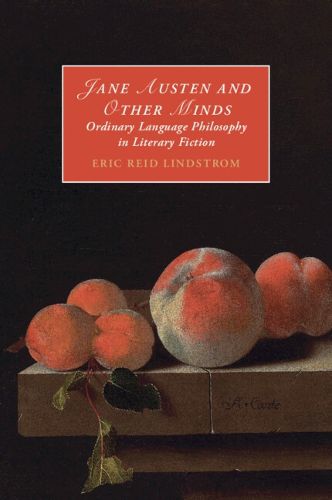Readings Newsletter
Become a Readings Member to make your shopping experience even easier.
Sign in or sign up for free!
You’re not far away from qualifying for FREE standard shipping within Australia
You’ve qualified for FREE standard shipping within Australia
The cart is loading…






Jane Austen's fiction is itself philosophy, a fact to which Stanley Cavell attested when he honored his philosophical teacher, J. L. Austin, through homage to her and her work. Engaging equally in criticism and in philosophy, Jane Austen and Other Minds demonstrates the standing of Austen's fiction as a philosophical investigation, both in its own right and as a resource to ordinary language philosophy in the twentieth and twenty-first centuries. Eric Reid Lindstrom addresses a long-standing shortcoming of Austen scholarship by locating in her fiction a linguistic phenomenology available to the novelistic everyday but not afforded her in intellectual history. He simultaneously advances recognition and understanding of J. L. Austin and Stanley Cavell, and of ordinary language philosophy, within Austen scholarship and the broader field of contemporary literary studies. This book argues compellingly for Cavell's choice of Austen as a means to pursue 'passionate exchange,' reimagining her common association with restriction and confinement.
$9.00 standard shipping within Australia
FREE standard shipping within Australia for orders over $100.00
Express & International shipping calculated at checkout
Jane Austen's fiction is itself philosophy, a fact to which Stanley Cavell attested when he honored his philosophical teacher, J. L. Austin, through homage to her and her work. Engaging equally in criticism and in philosophy, Jane Austen and Other Minds demonstrates the standing of Austen's fiction as a philosophical investigation, both in its own right and as a resource to ordinary language philosophy in the twentieth and twenty-first centuries. Eric Reid Lindstrom addresses a long-standing shortcoming of Austen scholarship by locating in her fiction a linguistic phenomenology available to the novelistic everyday but not afforded her in intellectual history. He simultaneously advances recognition and understanding of J. L. Austin and Stanley Cavell, and of ordinary language philosophy, within Austen scholarship and the broader field of contemporary literary studies. This book argues compellingly for Cavell's choice of Austen as a means to pursue 'passionate exchange,' reimagining her common association with restriction and confinement.